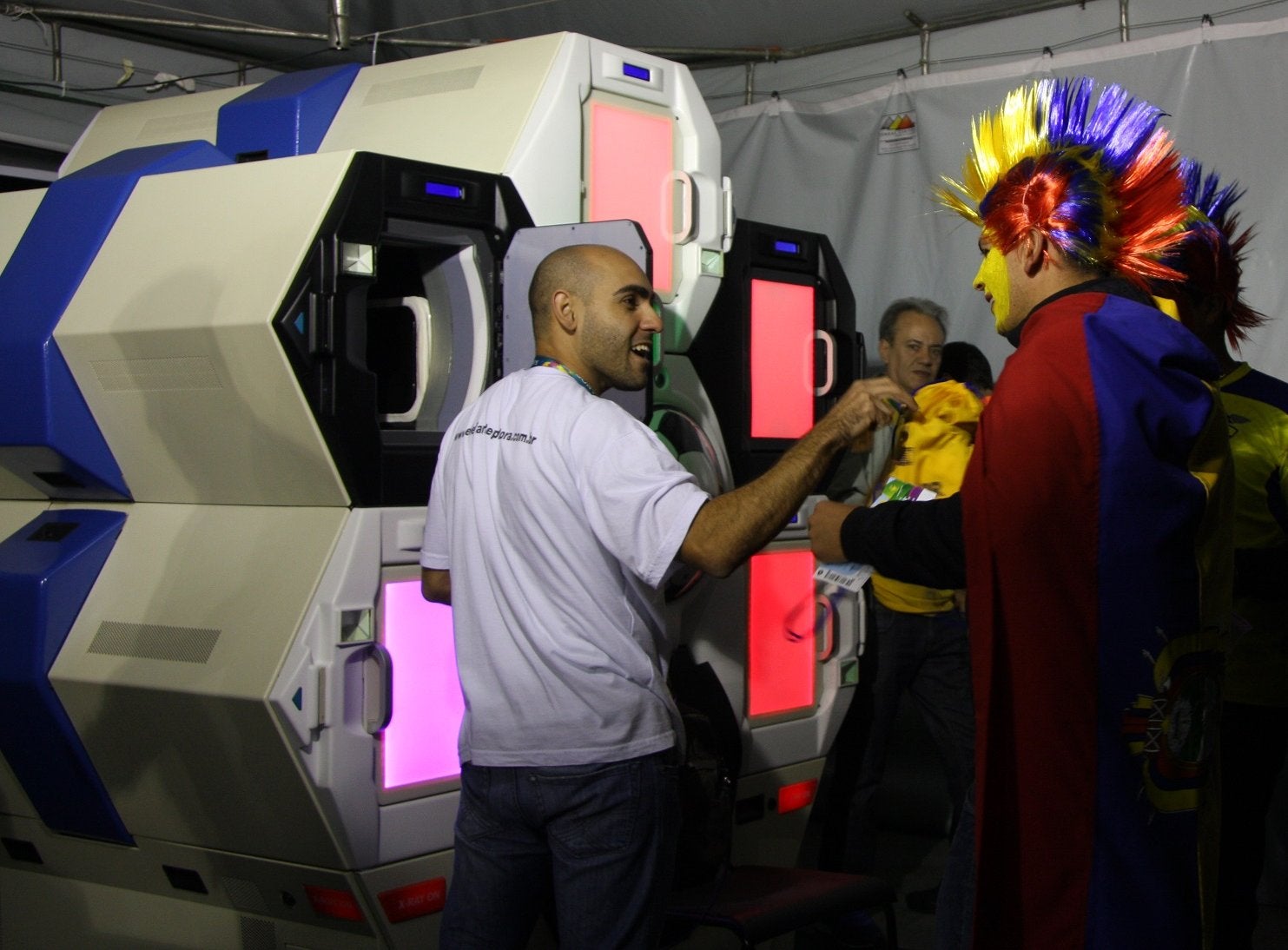World Cup-approved 'honeycomb' scanner could streamline airport security
Scanning machine lets users load and collect their own bags five at a time for faster security checks

Your support helps us to tell the story
From reproductive rights to climate change to Big Tech, The Independent is on the ground when the story is developing. Whether it's investigating the financials of Elon Musk's pro-Trump PAC or producing our latest documentary, 'The A Word', which shines a light on the American women fighting for reproductive rights, we know how important it is to parse out the facts from the messaging.
At such a critical moment in US history, we need reporters on the ground. Your donation allows us to keep sending journalists to speak to both sides of the story.
The Independent is trusted by Americans across the entire political spectrum. And unlike many other quality news outlets, we choose not to lock Americans out of our reporting and analysis with paywalls. We believe quality journalism should be available to everyone, paid for by those who can afford it.
Your support makes all the difference.The ‘Qylatron Entry Experience Solution’ might have an unwieldy name but its creators think that this honeycomb-shaped machine can streamline the tedium of airport security.
Recently tested during the World Cup at the Arena de Baixada stadium in Brazil, the Qylatron uses a cluster of oven-sized scanners to process five bags at a time far more quickly than manual checks.
Passengers unlock one of the pods by scanning their ticket before placing their luggage inside and then walking through the metal detectors to collect their bags on the other side.
According to a report from Wired, the Qylatron comes equipped with radiation, chemical and X-ray sensors to detect a variety of dangerous objects, with the lockers simply refusing to open if anything suspicious is found.
For tests during the World Cup this didn’t just mean weaponry and explosive but an extensive number of items banned by FIFA. For one game at the Arena de Baixada the list of contraband included toy kangaroos and bags of flours – objects apparently beloved of celebrating Australian fans.
For this task the Qylatron fed imagery from its scanners to operators who picked out the banned items. It seems like this would lead to security checks as slow as regular scanners, but Qylur say that their technology "significantly increase[s] passenger flow" and offers "drastic improvement to the passenger security experience". We can only hope.
Join our commenting forum
Join thought-provoking conversations, follow other Independent readers and see their replies
Comments